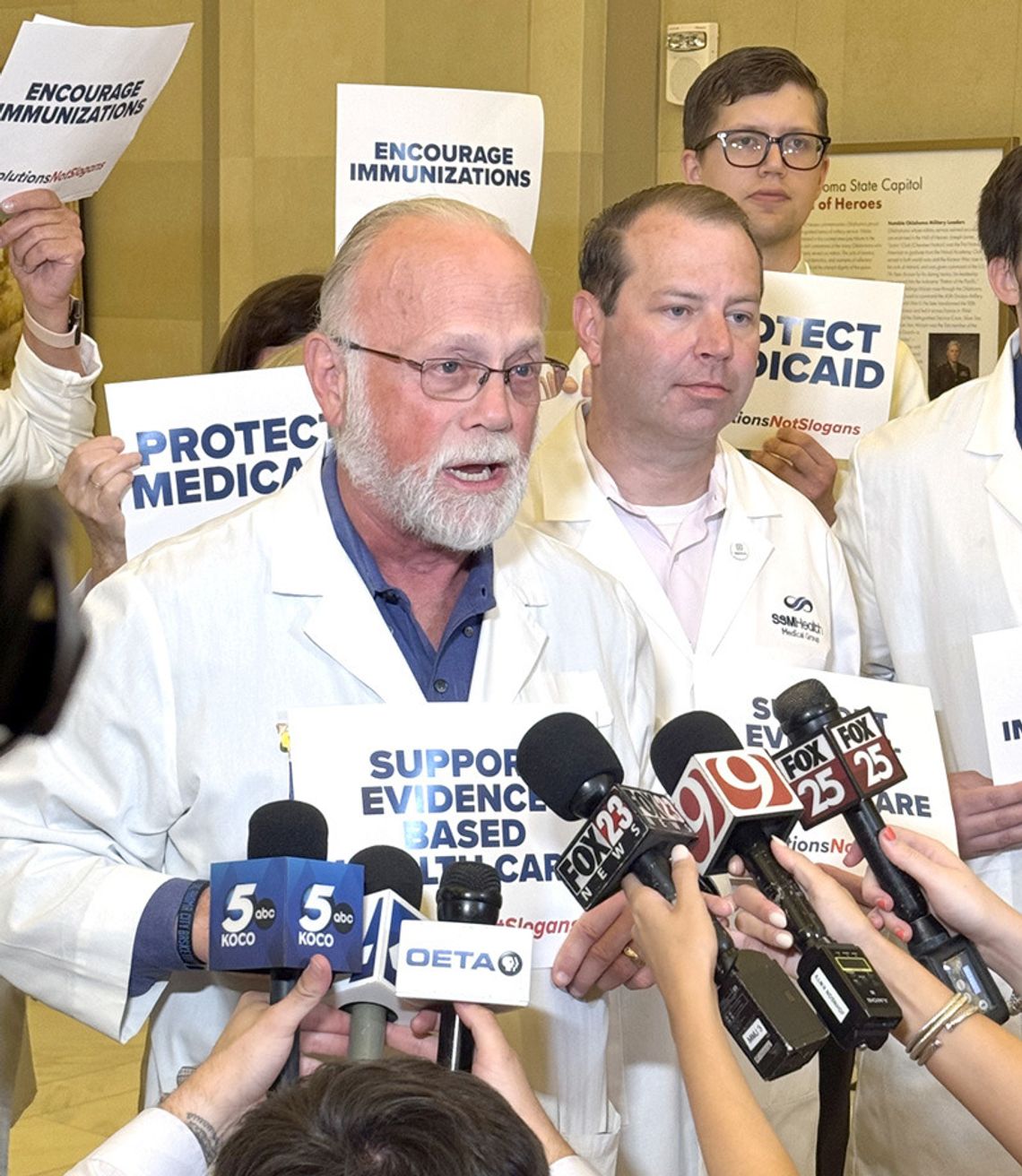Citing the need for solutions not slogans, a coalition of healthcare providers offered a list of practical ways policymakers can “make Oklahoma healthy again.”
“We agree that Oklahoma’s health needs must be addressed, but we don’t need Washington slogans. We need real solutions and Oklahoma policymakers who are willing to stand up for Oklahoma patients,” said Oklahoma State Medical Association President Sumit Nanda, M.D. “The solutions are backed by data and include addressing issues surrounding access to care, preventable hospitalizations and maternal mortality. If we truly want to make Oklahoma healthy, Oklahoma’s health community is here, and we’re ready for a serious conversation with Gov. Stitt on the best way to do that. Washington’s political theatre should stay in Washington.”
“Oklahoma’s health crisis won’t be solved without bold, sustained investment in primary care,” said Oklahoma Academy of Family Physicians President Rachel Franklin, M.D., FAAFP. “We need more primary care physicians in our communities, targeted programs that improve health outcomes, and a system that trains and keeps doctors where they’re needed most. Primary care is the front line of better health—and that includes science-backed public health efforts like vaccines, preventive care, and chronic disease management. When we ignore evidence, devalue education, and politicize science, we don’t just fall behind—we fail our people.”
The medical groups’ list of Five Practical Ways to Make Oklahoma Healthy includes: 1. Invest in health care infrastructure and education by funding hospitals in rural and urban parts of the state, increasing educational opportunities for doctors and dentists and growing incentives for them to practice in underserved areas.
2. Educate Oklahomans about the importance of science-based preventive health care, including wellness visits, dental visits, immunizations and fluoridation of public water.
3. Put Oklahoma tax dollars back in Oklahoma by restoring the DOGE funding cuts to health care.
4. Stop insurance company overreach. When insurance companies delay or deny care recommended by a doctor or dentist, patients pay the price.
5. Protect Oklahoma’s children and most vulnerable patients by ensuring Medicaid is fully funded.
The comments came after Health and Human Services Secretary Robert F. Kennedy Jr. hosted an event at the state capitol, where he discussed fluoride in drinking water, claiming it’s harmful.
But the vast majority of trained physicians disagree. The CDC, WHO and American Dental Association have long recognized fluoride as a safe, effective way to prevent tooth decay in children and adults. Doctors in Oklahoma agree. “The Oklahoma Dental Association supports community water fluoridation as the single most effective public health measure to prevent tooth decay,” said Oklahoma Dental Association President Twana Duncan, DDS from Antlers, Okla. Studies prove water fluoridation continues to be effective in reducing dental decay by at least 25% in children and adults, even in the era of widespread availability of fluoride from other sources, such as fluoride toothpaste. The U.S. Centers for Disease Control and Prevention has cited community water fluoridation as one of 10 great public health achievements of the 20th century, along with vaccinations, infectious disease control and motor vehicle safety. So, by simply drinking fluoridated water, you are doing something good for your oral health.” In addition to the ODA and OSMA, the Oklahoma Academy of Family Physicians, the Oklahoma Alliance for Healthy Families and the Oklahoma Chapter of the American Academy of Pediatrics joined the effort to urge Oklahoma leaders to take the health of Oklahomans seriously — and back away from the Washington politicians bringing policies that would bring added regulation to the Sooner state.
“The amount of fluoride in our drinking water is carefully monitored and exists solely to protect public health by preventing tooth decay,” said Oklahoma Chapter American Academy of Pediatrics President Ashley Weedn, M.D., MPH. “Public health works best when decisions are guided by science and made close to the communities they impact.”
“Healthcare should be backed by science and carried out by trained healthcare providers in collaboration with their patients,” said Dr. Steven Crawford, Chairman of the Oklahoma Alliance for Healthy Families. “Preventive care, including immunizations and regular wellness checks with a doctor and a dentist are vital in protecting an individual’s health. Our hope is that our governor will find a way to focus on initiatives that will truly take Oklahoma from a bottom 10 healthcare state to the top. Taking fluoride from drinking water won’t make Oklahomans healthier, but, more than likely, will decrease their health and increase healthcare costs.”





